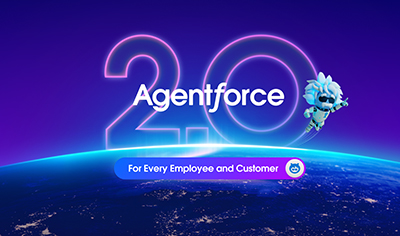Businesses are adopting new digital solutions more than ever to drive growth, boost customer engagement, and witness profitable outcomes. Salesforce bridges the gap between people & technology and has made business management fairly easy.
As per the data published on Trifin Labs, average Salesforce customers gained 25 percent in revenue, 35 percent in customer satisfaction, and 44 percent in sales productivity in a year’s time frame.
But not all organizations with Salesforce and other modern CRMs like Oracle, SAP, Microsoft achieve desired results. Many firms fail to establish a return-oriented strategy and hence secure below-par results. Data collected from various sources reveal various reasons behind the sub-par performance of CRM users.
Some of these include lack of scalability, multiple sources of truth, reliance on manual practices, and zero support for remote connectivity. Based on our experience as Salesforce Certified Partners, we present 5 research-based insights that will help you recognize potential lags in your CRM practice and allow you to achieve your true business potential.
Research-Based Insights to Improve Your Salesforce CRM Performance

1. Put Reliance on Security and Remote Work Connectivity
Over the years, we have seen a change in the business priorities related to CRMs’ development and adoption. While tech giants earlier focused on creating low-cost solutions, high security, and remote work connectivity, security and remote work connectivity have become the #1 preferences of vendors like Salesforce. As per its latest survey, 26 percent of CRM users labeled cost of ownership as the prime factor in
CRM consideration, 51 percent voted for trust and security, and 67 percent for remote workforce connectivity. In the coming years, we see a growing reliance of firms on CRMs with security and remote work connectivity features.
2. Make Your CRMs More Resilient for Future
Research findings have revealed the criticality of CRM systems in supporting business resiliency. In prevailing times where organizations are predominantly working remotely, 57 percent of executives reported struggling to maintain good customer experiences due to a lack of well-integrated systems. Employees are not able to access the tools they need for seamless customer engagement causing a sharp decline in organizations’ productivity, communication, and collaboration. To improve CRM performance and satisfy their current and emergent operational needs, businesses need well-integrated, easy-to-access cloud CRMs. With improved workforce resiliency, executives can adopt go-to-market strategies in uncertain times.
3. Do Not Limit CRM Usage to Sales and Service Operations
CRMs were first introduced to collect and dispatch basic customer information. Today it serves comprehensive business needs ranging from sales, marketing, and service to ecommerce, IoT, and more. In research conducted by Salesforce, 81 % of CRM users and Salesforce consulting partners said that they expect the CRM system to expand beyond the sales/service support in the next 3-5 years. Many CRM users revealed that their CRM insights are currently used by more than one team for various processes not including sales, marketing, and support. With advancing technology, increased competition, and new Salesforce product launches coming in, firms should be ready to implement operation-centric solutions in their software ecosystem.
4. Single Source of Truth to Overcome Data Silos
It is well evident that CRM fragmentation leads to data silos. Many organizations follow the practice where there is a separate CRM for every other department. Since data is not shared centrally, it impacts customer experience and the speed of service. As per research, 57 percent of businesses agreed that silos negatively impact the quality of customer and prospect experiences. To overcome silos, businesses must invest in centralized solutions while reducing dependency on legacy solutions. With a single source of truth, data will be easily accessible, agreeable, and used for more return-oriented customer engagements.
5. Artificial Intelligence will Define the Future of CRMs
Modern CRMs are not just limited to collecting, maintaining data, and using it for marketing/sales/service operations, they also support automation which helps in offloading repetitive actions — shortening work cycles. The use of AI recommendations further adds to the decision-making capability of firms helping in targeted customer acquisition. It is anticipated that by 2023, 79 percent of organizations will be having AI-powered CRMs for boosting customer prospecting. As one of the leading Salesforce consulting companies, we were able to relieve a similar percentage of employees from day-to-day processes.
The Way for Future
To realize the true potential of their business, firms should have a futuristic CRM strategy that focuses on overcoming the present as well as future needs of their businesses. With increasing digitization and more transformation technologies coming in, businesses should implement modern tech-integrated solutions that are advanced, resilient, and scalable. By keeping a note of changing business trends, popular research insights along with the support of Salesforce partners, firms can maximize the power of their solutions and secure the greatest business value.





